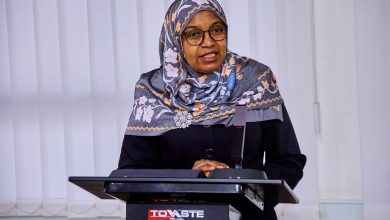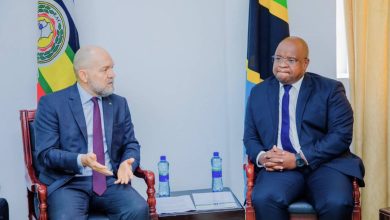Tanzania to accelerate railway investments to boost regional trade

DODOMA: TANZANIA has made a sky-high leap in modernizing its transport infrastructure, leveraging its strategic geographic position as a gateway to East and Southern Africa.
The Tanzanian government aims to improve connectivity and facilitate trade for neighboring countries that lack direct access to the sea.
Speaking during the opening of the 13th Parliament, President Samia Suluhu Hassan outlined plans to expand and modernize the country’s railway network. Key projects include completing the Standard Gauge Railway (SGR) central corridor segments: Makutupora–Tabora, Tabora–Isaka, Isaka–Mwanza, Tabora–Kigoma, and the Uvinza–Musongati segment to Burundi.
“These railway projects will create economic corridors that promote trade, investment, and business opportunities,” President Samia said. She further noted plans to construct new SGR lines from Tanga to Musoma and Mtwara to Mbamba Bay (Ruvuma), extending to Mchuchuma and Liganga, as well as rehabilitating existing lines, including TAZARA.
The President announced that a groundbreaking ceremony for the TAZARA rehabilitation project will soon take place in Zambia, while the Meter Gauge Railway (MGR) will undergo upgrades on several sections: Tabora–Kigoma, Kaliua–Mpanda, Tanga–Arusha, and Ruvu–Mruazi. These improvements aim to stimulate economic growth and create employment opportunities for Tanzanians.
To enhance efficiency and reduce transportation costs, the government plans to invite private operators to manage services on newly built lines under the Tanzania Railways Corporation (TRC), starting with TAZARA.
ALSO READ: President Samia calls for TRC-TAZARA synergy
In addition, Tanzania is planning to develop modern urban trains in rapidly growing cities such as Dar es Salaam and Dodoma. Dar es Salaam alone is expected to reach 10 million residents by 2030, making efficient urban transport critical for supporting economic activity.
“These projects are part of a broader strategy to maximize our geographic advantage, improve trade logistics, and facilitate sustainable urban development,” President Samia said.






RAIS WETU KAONGEA KUHUSU MIRADI MINGI SANA. HIVI ANAZO FEASIBILITIES STUDIES ZA MIRADI HIYO. ANAZO TAKWIMU ANAZO WEZA KULIONYESHA TAIFA GHARAMA ZAKE NA FAIDA YA KILA MRADI?